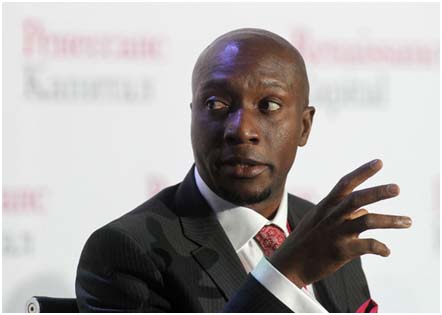 Market capitalization of African stock exchanges has appreciated to over $1.3 trillion from January 2015 to date, according to the President of the African Securities Exchanges Association (ASEA), Mr. Oscar N. Onyema.
Market capitalization of African stock exchanges has appreciated to over $1.3 trillion from January 2015 to date, according to the President of the African Securities Exchanges Association (ASEA), Mr. Oscar N. Onyema.
Onyema, who is also the CEO of the Nigerian Stock Exchange in his opening remarks on Monday at the 19th Annual ASEA Conference in Johannesburg, South Africa said, from the beginning of 2015 to date, African exchanges collectively have traded over $325.0 billion in equities, $1.2 trillion in bonds, and $438.0 billion in ETFs & Others, representing a market capitalization of over $1.3 trillion.
In terms of governance and ownership structure, he said several of the exchanges were demutualized, while others were in the process of demutualizing. “Today, our exchanges are becoming active players in the global exchange business, and the conference theme “Evermore” is about sustaining that growth position, and becoming a real platform for growth in the African economy,” he said.
Onyema noted that when compared with this year’s performance, growth in sub-Saharan Africa was projected to pick up in 2016 by 0.5 percentage points to 4.3% based on the IMF’s World Economic Outlook. “The growth is expected to be supported by moderate global recovery, and growth in low-income developing countries which compared to this year are projected to grow by one more percentage point to 5.8% in 2016,” he said.
The ASEA President bared strong optimism towards Africa’s development in cognizance with the year’s conference, themed “Africa Evermore”, with the urge to discover the process towards sustaining growth position, and becoming a real platform for growth in the African economy
“Africa’s positive outlook is just one of the many opportunities that if well harnessed could seriously position the continent for greater heights,” he said.
He also expressed the need for the conference to deliver a better understanding of: how best to pursue social values, without losing sight of the traditional financial objectives of our businesses; and the correlation between the health of our economies, and the value of our capital markets, bearing in mind peculiar strengths, that individually and collectively we could leverage as we press forward.
According to him, there was no better time than now to intensify efforts in ongoing initiatives that foster the advancement of regional integration and cooperation.
He said: “These sub-regional integration efforts such as WACMI in West Africa, CoSSE in Southern Africa, and EAC in East Africa must be encouraged. We must also begin to study how to effectively link the entire region. Hence, the African Exchanges Linkage Project (AELP) which is a jointly owned mandate between ASEA and the Africa Development Bank (AfDB), is a step in the right direction. It is aimed at addressing the lack of liquidity in African capital markets by creating linkages across key regional markets to reduce fragmentation and information asymmetry.
“All of these efforts to deepen the continent’s markets will aid in pushing Africa’s economic transformation, and enhancing national competitiveness. But we must be careful to never lose sight of the real objective of these initiatives, which is to stimulate opportunities for the investment community, and expose issuers to deeper pools of capital, and a wider community of analysts and investors pools.
“Weak corporate governance is often found responsible for many of the corporate failures in Africa. However, as securities exchanges, we operate powerful platforms through which we can influence and promote sustainable business practices. Accordingly, we must increase our contribution and participation in developing our national codes of corporate governance, by setting strong listing and maintenance requirements, and ensuring adequate disclosure of listed companies’ corporate governance arrangements.”
With a belief that the conference’s interactions will elevate business strategies to ride out the headwinds so far experienced, Onyema expressed hope of better positioning to unlock Africa’s growth potential, and empowerment to advance the development of Africa’s capital markets.
By Pita Ochai


